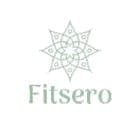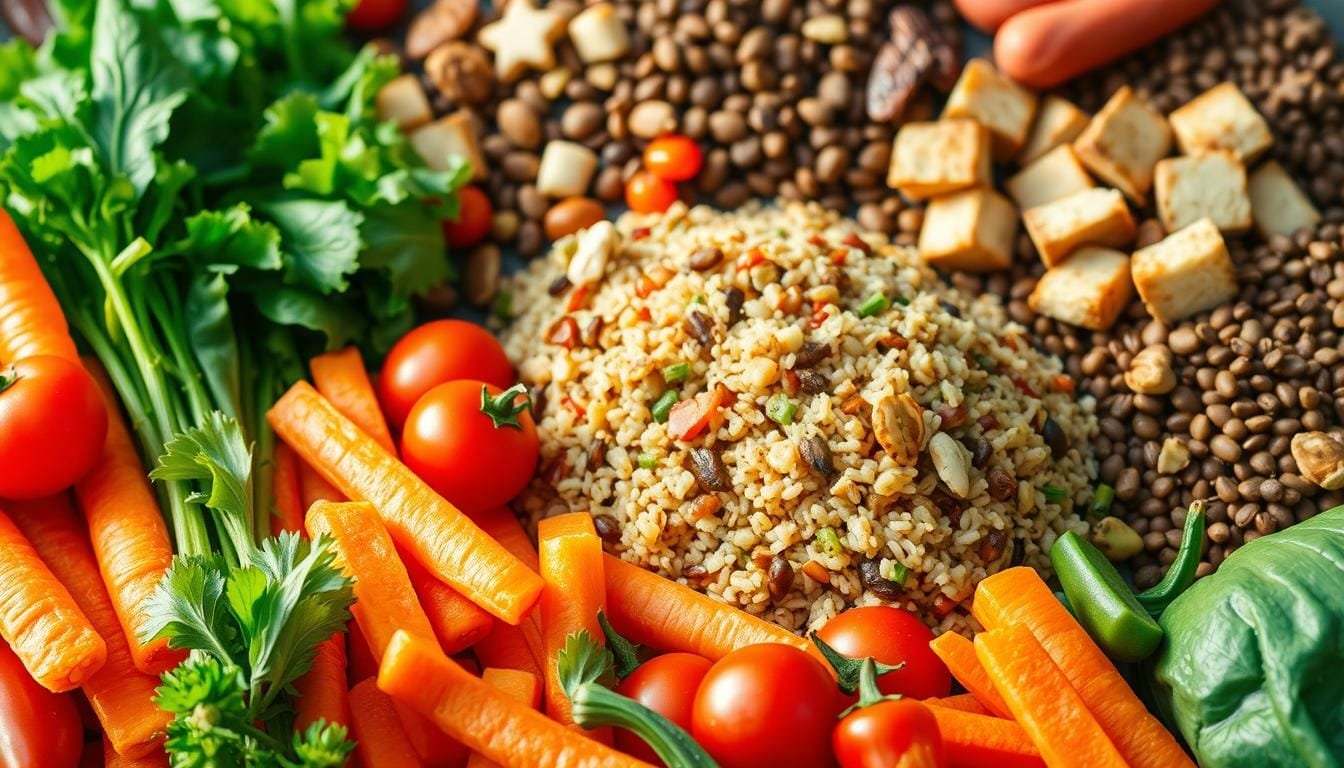Sarah always loved her morning yogurt and scrambled eggs. But when she decided to cut out meat and dairy, she quickly realized her energy levels were dropping. After some research, she discovered that simply removing animal products wasn’t enough—she needed to replace them with nutrient-rich food choices. That’s when she learned how to eat a balanced vegetarian diet to maintain her health and energy.
Like Sarah, many people are turning to plant-based lifestyles for better health. However, eliminating meat and dairy without proper planning can lead to deficiencies in essential nutrients like vitamin B12, iron, and protein. Understanding how to eat a balanced vegetarian diet ensures you get all the vitamins and minerals your body needs.
Whether you’re fully vegan or just reducing animal products, focusing on whole, plant-based options can improve heart health and lower cholesterol. With the right strategies, you can thrive on a plant-based diet while feeling your best.
Key Takeaways
- Plan meals to replace nutrients from meat and dairy.
- Focus on whole, plant-based foods for better health.
- Ensure adequate intake of vitamin B12 and iron.
- Include protein-rich options like beans and lentils.
- Plant-based diets can improve heart health and lower cholesterol.
Introduction to Vegetarian Diets
Understanding the basics of vegetarianism is the first step toward a healthier lifestyle. A vegetarian diet excludes meat, but there are several variations to consider. Each type offers unique benefits and challenges, depending on your preferences and nutritional needs.
Defining Vegetarianism and Its Variations
Vegetarianism isn’t a one-size-fits-all approach. The most common types include lacto-ovo-vegetarian, which includes dairy and eggs, and lacto-vegetarian, which excludes eggs but includes dairy. For those avoiding all animal products, a vegan diet is the strictest option.
Other variations include pescatarian, which includes fish, and flexitarian, which occasionally allows meat. Choosing the right type depends on your health goals and ethical considerations.
Health Benefits and Common Nutrient Considerations
Adopting a plant-based lifestyle can lower the risk of heart disease, diabetes, and certain cancers. Increased intake of fruits, vegetables, and whole grains provides essential vitamins and minerals. However, careful planning is needed to avoid deficiencies.
Common concerns include a lack of vitamin B12, iron, and protein. For example, egg and dairy products are key sources of B12 for lacto-ovo vegetarians. Vegans may need fortified foods or supplements to meet their needs.
Additionally, healthy fat sources like nuts and seeds are crucial for overall well-being. Balancing these nutrients ensures you reap the full benefits of a vegetarian diet while minimizing potential risks.
Check This:
- 7 Essential Tips on How to Eat a Balanced Diet as a Vegetarian
- Gluten free Indian Vegetarian diet plan: A Flavorful, Nutritious Plan
How to Eat a Balanced Vegetarian Diet
Whole foods and variety are the foundation of a healthy plant-based lifestyle. Choosing minimally processed options ensures you get the most nutrients from your meals. This approach not only supports your health but also keeps your diet interesting and satisfying.
The Importance of Whole Foods and Variety
Focusing on whole foods rather than processed alternatives is critical. Whole grains, fresh fruits, and vegetables provide essential vitamins and minerals. These foods are naturally rich in fiber, which aids digestion and keeps you full longer.
Variety in your meals ensures you cover all your nutritional needs. Different fruits, vegetables, grains, and legumes offer unique benefits. For example, leafy greens are packed with iron, while beans are an excellent source of protein.
Incorporating diverse protein sources is equally important. Plant-based options like lentils, chickpeas, and tofu are versatile and nutrient-dense. For those who include dairy, yogurt and cheese can add variety and essential nutrients like calcium and vitamin B12.
Don’t overlook the role of seeds in your diet. Chia, flax, and sunflower seeds are packed with healthy fats, fiber, and protein. They’re an easy way to boost the nutritional value of smoothies, salads, or snacks.
“A varied diet ensures you get all the nutrients your body needs to thrive.”
By prioritizing whole foods and embracing variety, you can create a well-rounded plant-based diet. This approach not only supports your health but also makes every meal enjoyable and nutritious.
Building a Nutritious Plate
Creating a nutritious plate starts with a mix of colorful, nutrient-packed foods. A well-rounded meal includes a variety of whole foods that provide essential vitamins, minerals, and energy. By focusing on diversity, you can ensure your body gets what it needs to thrive.
Including Fruits, Vegetables, and Whole Grains
Filling half your plate with vegetables and fruit is a simple yet effective strategy. These foods are rich in fiber, vitamins, and antioxidants. Leafy greens, berries, and citrus fruits are excellent choices for boosting your nutrient intake.
Whole grains like quinoa, oats, and brown rice should make up about 25% of your plate. They provide sustained energy and are packed with fiber, which supports digestion and keeps you full longer. Choosing whole grains over refined options helps maintain stable blood sugar levels.
Incorporating Plant-Based and Dairy Proteins
Protein is essential for muscle repair and overall health. Plant-based options like beans, lentils, and tofu are versatile and nutrient-dense. These foods are also rich in iron and fiber, making them a great addition to any meal.
For those who include dairy, yogurt and cheese can provide calcium and vitamin B12. Pairing these with plant-based proteins ensures you meet your daily needs. Limiting processed meats and opting for healthier choices supports long-term health.
“A diverse plate ensures you get all the nutrients your body needs to function at its best.”
| Food Group | Examples | Benefits |
|---|---|---|
| Fruits | Berries, apples, oranges | Rich in vitamins and antioxidants |
| Vegetables | Spinach, broccoli, carrots | High in fiber and minerals |
| Whole Grains | Quinoa, oats, brown rice | Provides sustained energy |
| Proteins | Beans, tofu, yogurt | Supports muscle repair and growth |
Monitoring sugar and calorie intake is equally important. Limiting sugary beverages and processed snacks helps maintain a healthy weight. Focus on whole, minimally processed foods to maximize nutritional benefits.
By combining these elements, you can build a plate that’s both delicious and nutritious. This approach ensures you enjoy a variety of flavors while meeting your dietary needs.
Protein and Vitamin Essentials for Optimal Health
Meeting your protein and vitamin needs is essential for maintaining energy and health. A plant-based lifestyle can provide all the nutrients your body requires, but it’s important to focus on key sources. This ensures you stay strong and energized while following your dietary preferences.

Key Protein Sources for Vegetarians and Vegans
Protein is a building block for muscle repair and overall wellness. For those on a plant-based diet, options like beans, lentils, and tofu are excellent choices. These foods are not only rich in protein but also provide iron and fiber.
Other great sources include tempeh, edamame, and seitan. For those who include dairy, yogurt and cheese can add variety and essential nutrients. Combining these with whole grains like quinoa or brown rice creates complete meals that keep you full and satisfied.
Ensuring Adequate Vitamin B12 and Calcium Intake
Vitamin B12 is crucial for nerve function and energy production. Since it’s naturally found in animal products, vegans may need fortified foods or supplements. Nutritional yeast, fortified cereals, and plant-based milks are great ways to meet your B12 needs.
Calcium is equally important for bone health. Dairy products are a rich source, but plant-based alternatives like fortified soy milk and leafy greens can also help. Aim for three servings of calcium-rich foods daily to meet your requirements.
“Focusing on nutrient-rich foods ensures you thrive on a plant-based lifestyle.”
By prioritizing protein and vitamins, you can maintain a healthy and balanced diet. This approach supports your overall well-being while keeping your meals delicious and varied.
Managing Carbohydrates and Fats
Carbohydrates and fats play a vital role in maintaining energy and overall health. Making smart choices about these nutrients can significantly impact your well-being. Focus on quality over quantity to ensure your body gets the best fuel possible.
Choosing Whole Grains over Refined Carbs
Whole grains are a better choice than refined carbohydrates. They provide sustained energy and help stabilize blood sugar levels. Foods like quinoa, oats, and brown rice are excellent options. They’re packed with fiber, which supports digestion and keeps you full longer.
Refined carbs, such as white bread and sugary snacks, can cause blood sugar spikes. Over time, this may increase the risk of diseases like diabetes and heart conditions. Replacing these with whole grains can improve your health and energy levels.
Managing Dietary Fats
Not all fats are created equal. Unsaturated fats, found in nuts, seeds, and avocados, are heart-healthy. They can lower bad cholesterol and reduce the risk of disease. On the other hand, saturated fats, often found in processed foods, should be limited.
Including healthy fats in your meals can improve nutrient absorption and support brain function. Aim to balance your fat intake by choosing plant-based oils and avoiding heavily processed products.
“The quality of your carbs and fats directly impacts your energy and long-term health.”
| Nutrient | Healthy Choices | Benefits |
|---|---|---|
| Carbohydrates | Whole grains, legumes | Stabilizes energy, supports digestion |
| Fats | Nuts, seeds, avocados | Improves heart health, aids nutrient absorption |
| Calcium | Leafy greens, fortified plant milk | Strengthens bones, supports muscle function |
Balancing your meals with whole grains and healthy fats ensures you get the nutrients your body needs. This approach not only supports your health but also keeps your diet varied and enjoyable.
Smart Substitutions and Portion Control
Switching to plant-based alternatives doesn’t mean sacrificing flavor or nutrition. With the right choices, you can enjoy delicious meals while supporting your heart health and overall well-being. Smart substitutions and portion control are essential for maintaining a balanced lifestyle.
Healthy Replacements for Meat, Dairy, and Egg
Replacing meat with plant-based options like tofu, tempeh, and seitan ensures you get enough protein. These alternatives are versatile and can be used in a variety of dishes. For example, tofu can be scrambled like eggs, and tempeh works well in stir-fries.
Dairy substitutes such as almond milk, soy yogurt, and cashew cheese are excellent choices. They provide essential nutrients like calcium and vitamin B12. When choosing these products, opt for fortified versions to meet your nutritional needs.
Egg replacements like flaxseed meal or chia seeds are great for baking. They add texture and moisture while keeping your recipes plant-based. These swaps not only reduce saturated fats but also lower the risk of heart disease.
Tips for Effective Portion Management
Controlling the amount of food you eat is crucial for maintaining a healthy weight. Use your hand as a guide: a serving of protein should be the size of your palm, while a serving of grains should fit in your cupped hand.
Focus on filling half your plate with vegetables and fruits. This ensures you get enough fiber and nutrients without overloading on calories. Pair these with a moderate amount of whole grains and plant-based proteins for a balanced meal.
Snack smart by choosing nutrient-dense options like nuts, seeds, or fresh fruit. These keep you full between meals and provide essential vitamins and minerals. Avoid processed snacks that are high in sugar and unhealthy fats.
“Small changes in your diet can lead to big improvements in your health.”
| Food Type | Healthy Substitution | Portion Size |
|---|---|---|
| Meat | Tofu, tempeh, seitan | 3 oz cooked |
| Dairy | Almond milk, soy yogurt | 1 cup |
| Eggs | Flaxseed meal, chia seeds | 1 tbsp per egg |
| Snacks | Nuts, seeds, fresh fruit | Handful (1 oz) |
By making smart substitutions and managing portions, you can enjoy a healthier lifestyle. These strategies not only support your heart but also help prevent overeating and nutrient deficiencies.
Overcoming Nutritional Deficiencies and Risks
Maintaining optimal health on a plant-based diet requires careful attention to nutrient intake. While vegetarian and vegan lifestyles offer numerous benefits, poorly planned diets can lead to deficiencies in essential vitamins and minerals. Recognizing these gaps and taking proactive steps ensures long-term well-being.
Recognizing Signs of Nutrient Gaps
Fatigue, weakness, and pale skin are common symptoms of iron deficiency. This condition, known as anemia, is more prevalent in plant-based diets due to lower absorption of non-heme iron. Including iron-rich foods like lentils and pairing them with vitamin C sources can enhance absorption.
Vitamin B12 deficiency is another concern, especially for vegans. Symptoms include fatigue, tingling sensations, and memory issues. Since B12 is primarily found in animal products, fortified foods or supplements are essential for meeting daily needs.
Utilizing Supplements and Professional Guidance
Supplements can bridge nutrient gaps effectively. For example, vitamin B12 supplements or fortified nutritional yeast are excellent options. Calcium and vitamin D supplements are also beneficial for bone health, particularly for those avoiding dairy.
Consulting a registered dietitian ensures personalized nutrition planning. They can assess your dietary habits, recommend appropriate supplements, and help you create a balanced meal plan. Regular check-ups and blood tests are crucial for monitoring nutrient levels.
“Professional guidance ensures you meet your nutritional needs while enjoying the benefits of a plant-based lifestyle.”
| Nutrient | Common Sources | Supplements |
|---|---|---|
| Iron | Lentils, spinach, fortified cereals | Iron tablets, vitamin C for absorption |
| Vitamin B12 | Fortified plant milk, nutritional yeast | B12 supplements |
| Calcium | Leafy greens, fortified tofu | Calcium supplements |
By addressing potential deficiencies and seeking professional advice, you can enjoy the full benefits of a plant-based diet. This approach ensures your body receives all the essential nutrients it needs to thrive.
Practical Meal Planning and Preparation Tips
Balancing a busy schedule with healthy eating doesn’t have to be overwhelming. With the right strategies, you can enjoy nutritious meals without spending hours in the kitchen. Planning ahead and simplifying your routine are key to staying on track.

Planning Balanced Meals for Busy Lifestyles
Start by creating a weekly meal plan that includes a variety of whole foods. Focus on nutrient-dense options like pea protein, leafy greens, and whole grains. This ensures you get essential vitamins and minerals without sacrificing flavor.
Batch cooking is a game-changer for busy schedules. Prepare large portions of staples like quinoa, roasted vegetables, or vegan soups. Store them in the fridge or freezer for quick, ready-to-eat meals throughout the week.
Don’t forget to include snacks in your plan. Nuts, seeds, and fresh fruit are easy to grab on the go. Pair them with a glass of fortified milk for added calcium and vitamin D.
Time-Saving Cooking and Prep Strategies
Invest in kitchen tools that save time, like a slow cooker or food processor. These gadgets make it easy to prepare meals with minimal effort. For example, toss ingredients into a slow cooker in the morning, and dinner will be ready by evening.
Prepping fresh ingredients during the weekend is another great strategy. Wash and chop vegetables, cook grains, and portion out snacks. This reduces daily prep time and makes it easier to stick to your plan.
If you’re transitioning to a vegan lifestyle, explore plant-based alternatives like tofu, tempeh, and pea protein. These options are versatile and can be used in a variety of dishes, from stir-fries to salads.
“Efficient meal prep ensures you stay on track with your health goals, even on the busiest days.”
| Meal | Prep Tips | Storage |
|---|---|---|
| Breakfast | Overnight oats with almond milk and berries | Store in jars for up to 3 days |
| Lunch | Quinoa salad with roasted vegetables | Keep in airtight containers for 4 days |
| Dinner | Vegan chili with beans and lentils | Freeze portions for up to 3 months |
By incorporating these tips, you can simplify meal preparation and enjoy a variety of nutrient-rich foods. Whether you’re fully vegan or just reducing eat meat, these strategies make healthy eating effortless and enjoyable.
Conclusion
Adopting a plant-based lifestyle can transform your health and energy levels when done thoughtfully. By focusing on whole food like fruits, vegetables, and grains, you provide your body with essential nutrients. Monitoring key elements such as iron and vitamin B12 ensures you avoid deficiencies and maintain vitality.
Incorporating dairy product alternatives or fortified options can help meet your daily needs. Planning meals ahead and seeking professional guidance ensures a smooth transition. The long-term benefits, including improved heart health and reduced disease risk, make this journey worthwhile.
Start small, experiment with new recipes, and consult reliable resources. Every day is an opportunity to enhance your well-being through mindful choices. Embrace the plant-based lifestyle and enjoy the positive changes it brings to your life.
Source Links
- https://www.nhs.uk/live-well/eat-well/how-to-eat-a-balanced-diet/the-vegetarian-diet/ – The vegetarian diet
- https://www.factor75.com/eat/staying-healthy/maintain-a-balanced-vegan-vegetarian-diet – 8 Ways to Balance Nutrition as a Vegan or Vegetarian | Factor

